Curriculum
Curriculum Introduction
The curriculum emphasizes children's learning initiatives. Based on the different abilities and personalities of children, diverse and inspiring activities, whole-language instruction, project learning are adopted to achieve a comprehensive and spiral curriculum. This also helps facilitate the moral, intellectual, physical, social, aesthetic development of children, thus establishing a solid foundation for their learning and growth.
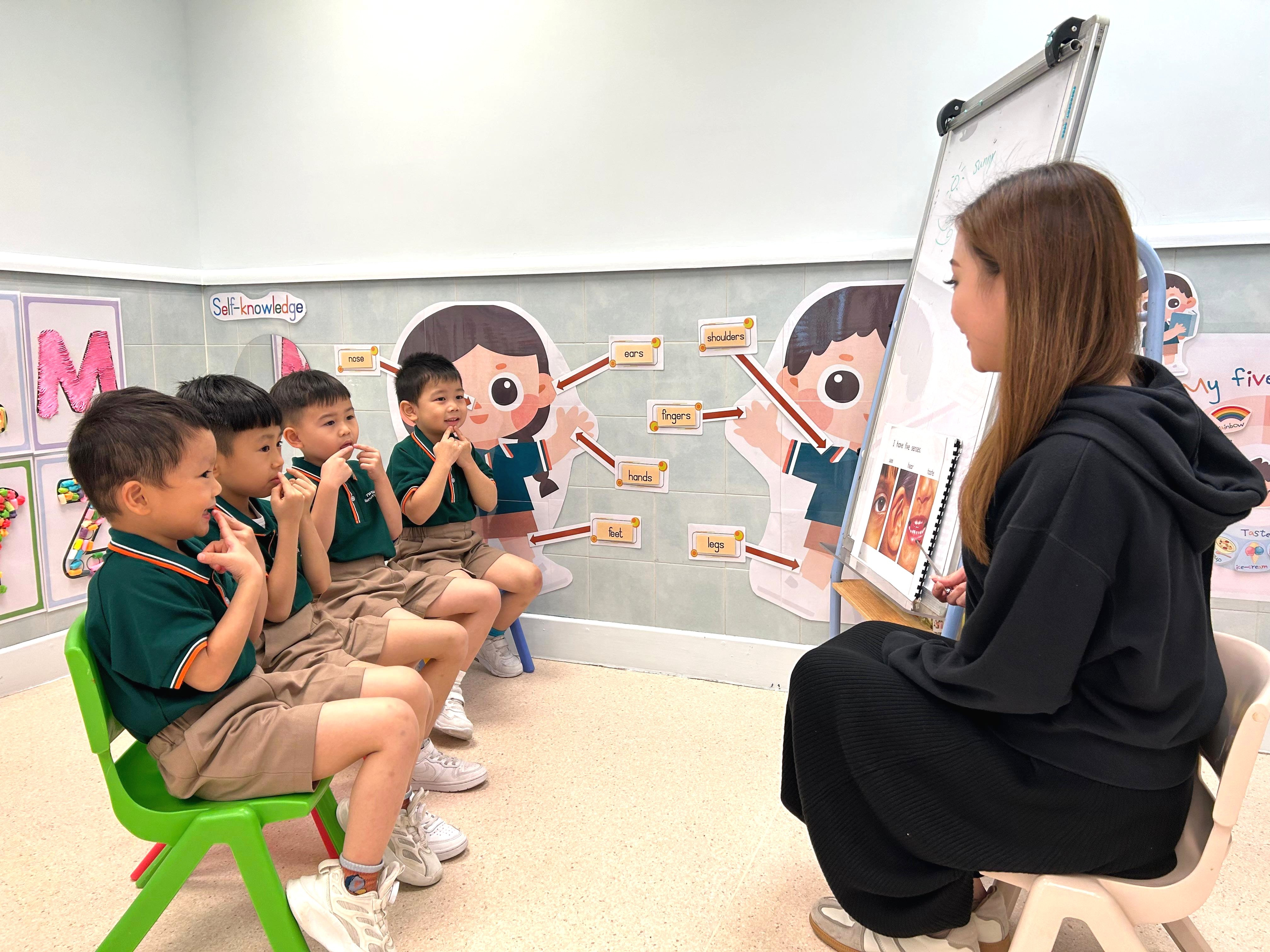
The nursery school uses whole-language instruction to help establish the listening, speaking, reading and writing abilities of children. The reading abilities, interests and habits of children are cultivated through Chinese and English storybooks, whose stories combine life experiences and different themes, including language, mathematics, nature and life, creative arts etc.
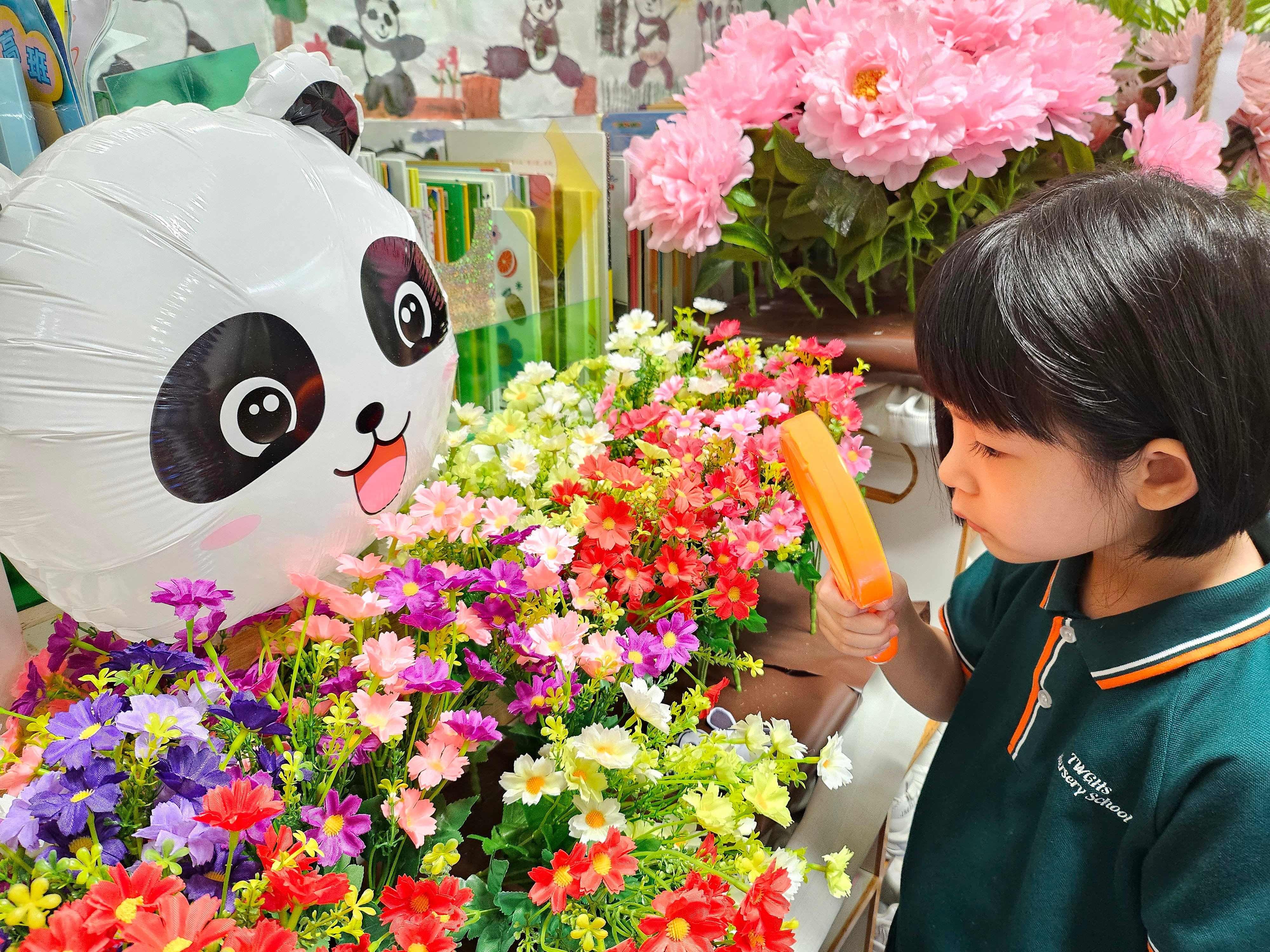
The nursery school implements project-based teaching, using a child-led approach and a range of activities such as exploration, interviews, sharing, research, and tasting so as to enhance the children's knowledge, skills and attitudes on different themes. Through experimentation and situational learning, we encourage children to actively explore, improve their social skills in communication, while also establishing their critical thinking and problem-solving skills.
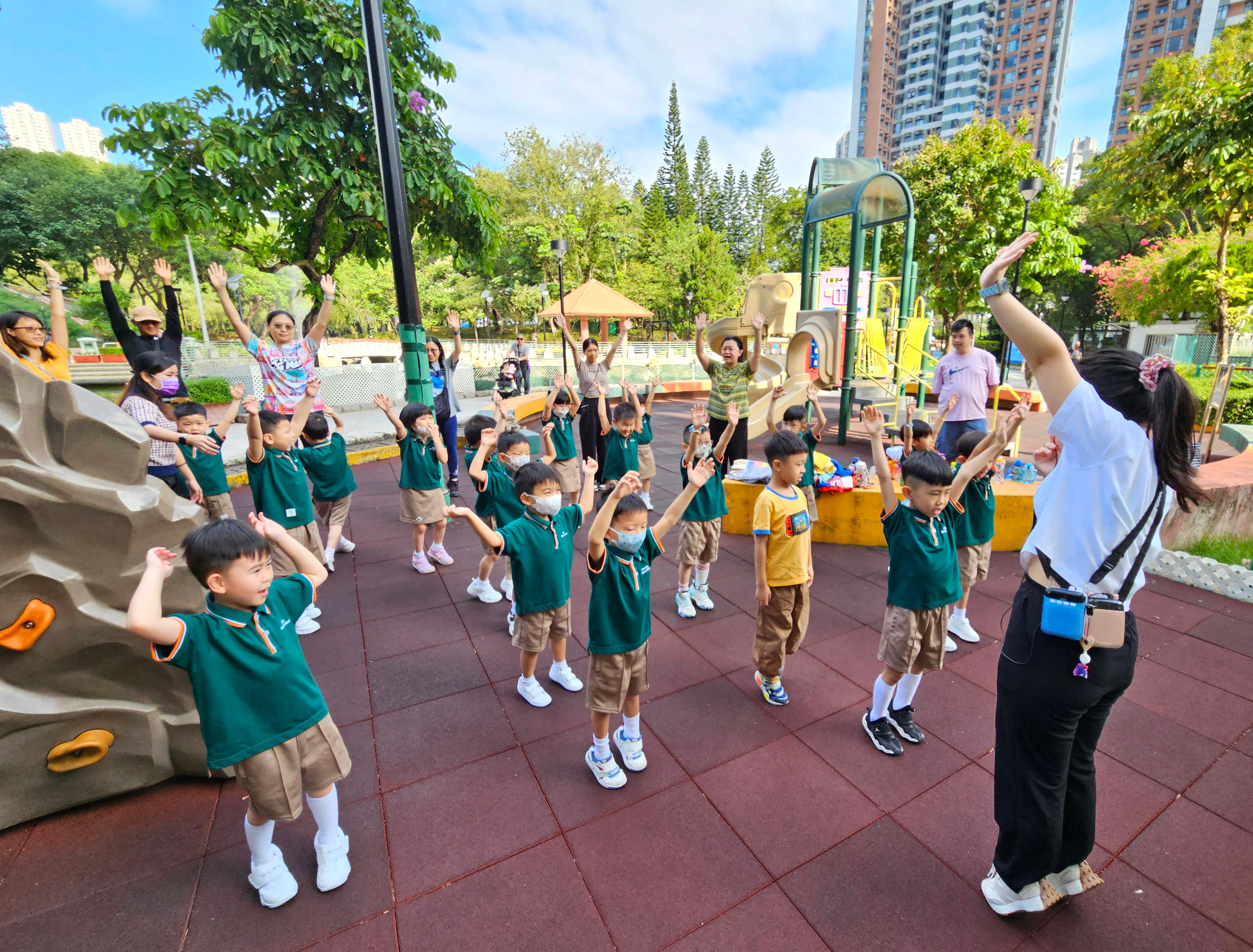
The nursery school places great emphasis on the physical development of children and has thus invited an occupational therapist for consultation, who also collaborates with our teachers to plan and create a tailored and diversified Perceptual Motor Training Curriculum for different age groups. Furthermore, lower and upper kindergarten groups participate in outdoor physical activities bi-monthly, so as to increase their usage of public facilities and enhance their physical development, such as their movement, muscle strength and stamina etc.
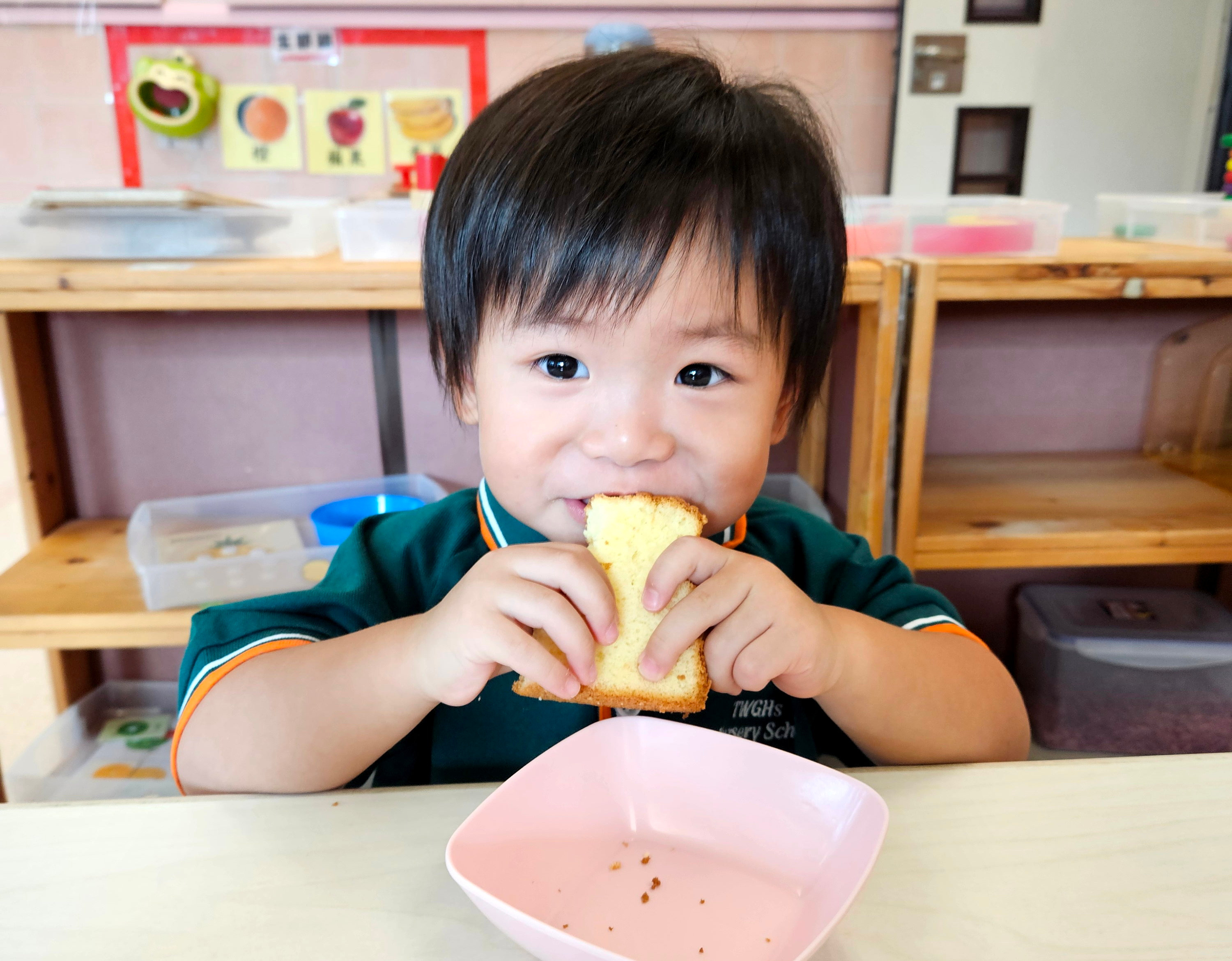
Montessori education emphasizes the education of everyday life, including taking care of oneself, taking care of others, and taking care of one's surroundings. Through training, children establish their concentration, discipline and independence, as well as their confidence, self-esteem, collaboration and ability to take care of others, thus developing a healthy personality.
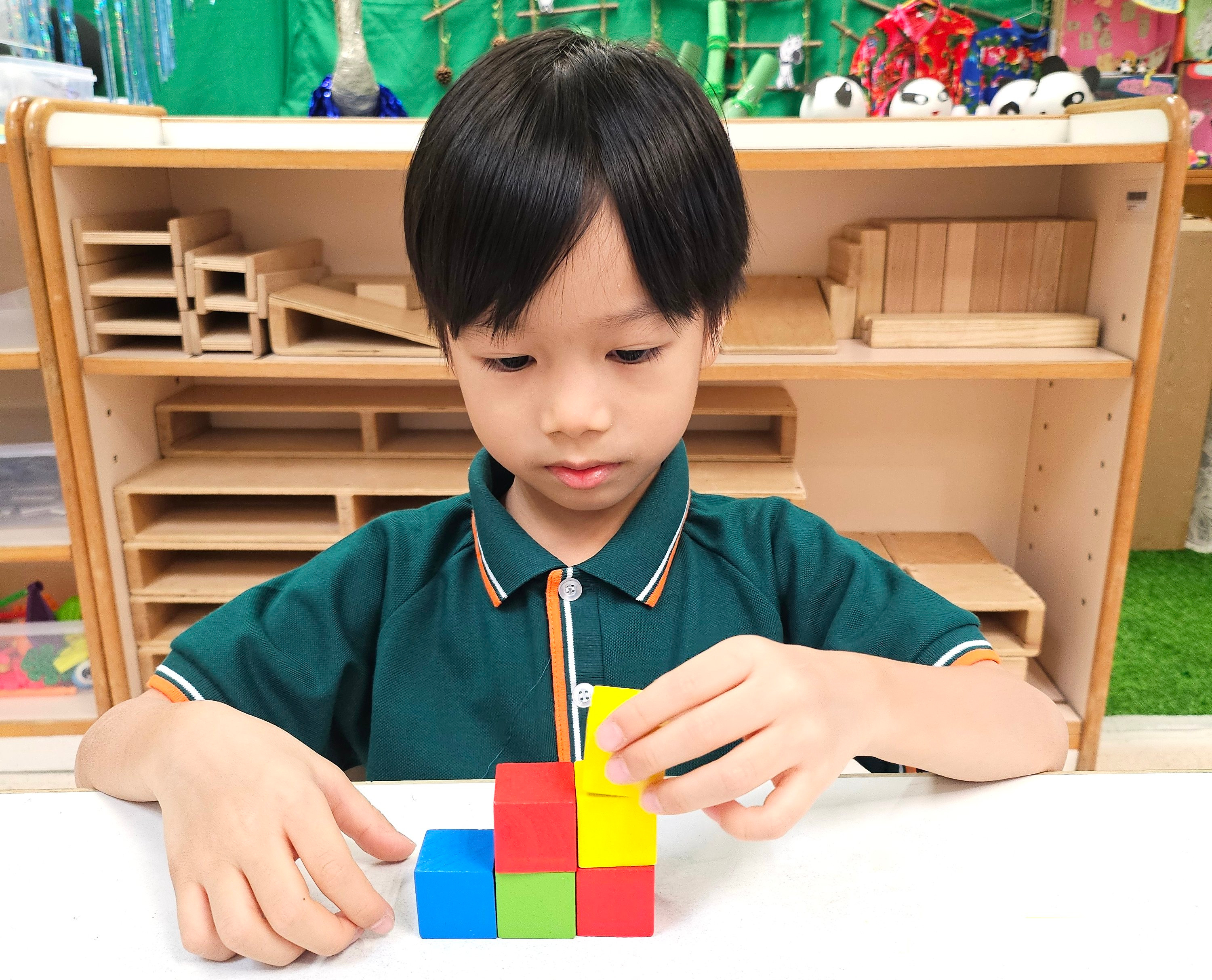
The SMART writing formula utilizes sensory integration activities to build concentration, rhythm and posture; arts and crafts activities to improve grip strength and coordinated pen control. It uses effective methods to facilitate learning and makes use of teaching materials to aid with visual-spatial coordination, thus allowing children to establish a solid foundation prior to writing.
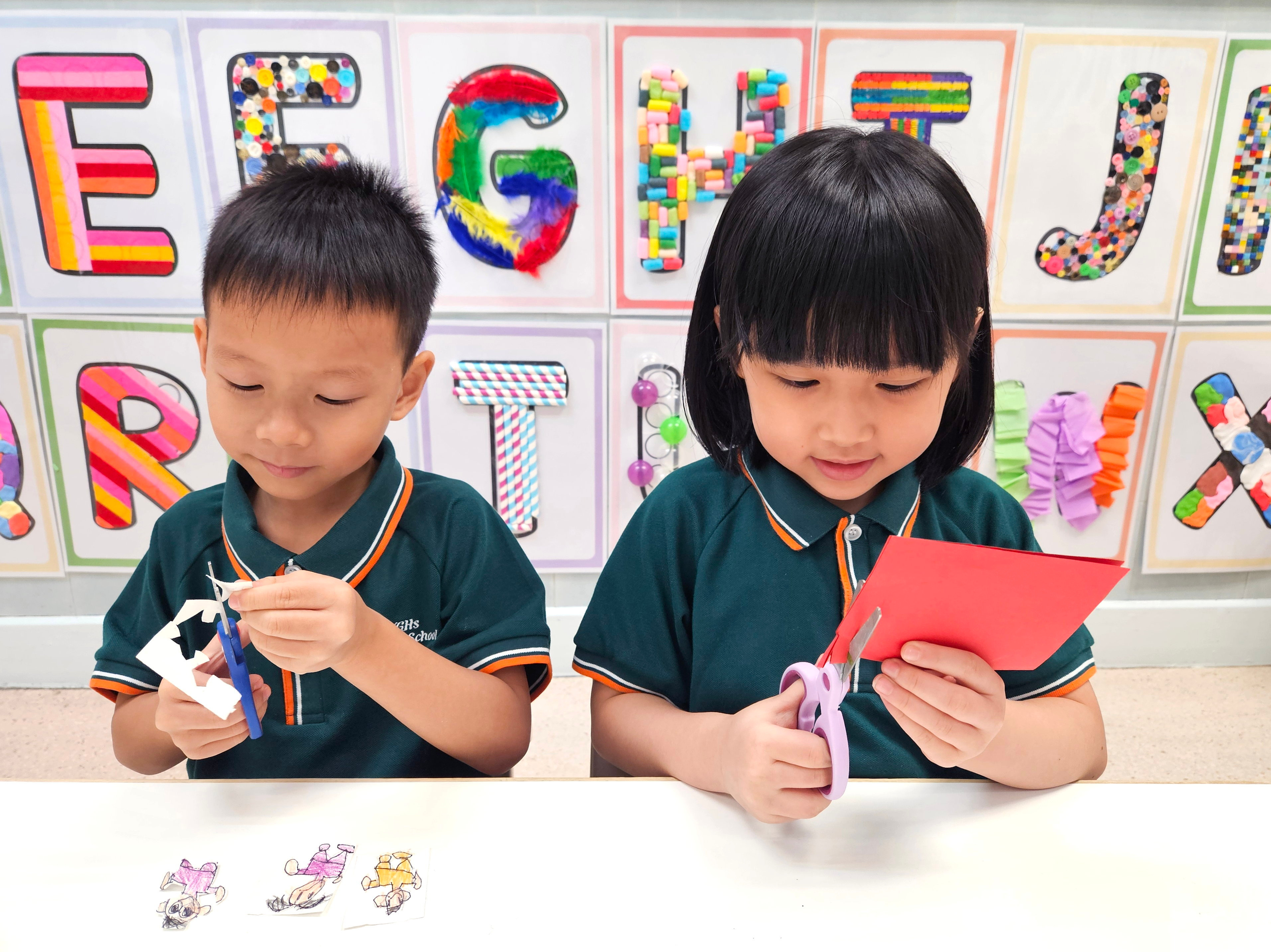
The nursery school has devised a pre-primary curriculum suited to upper kindergarten children with the help of an occupational therapist, who creates tailored activities and materials. The aim is allowing children to have a better grasp of life skills such as pre-writing exercises, spatial awareness, healthy dieting, and self-care, so as to prepare them for primary school.
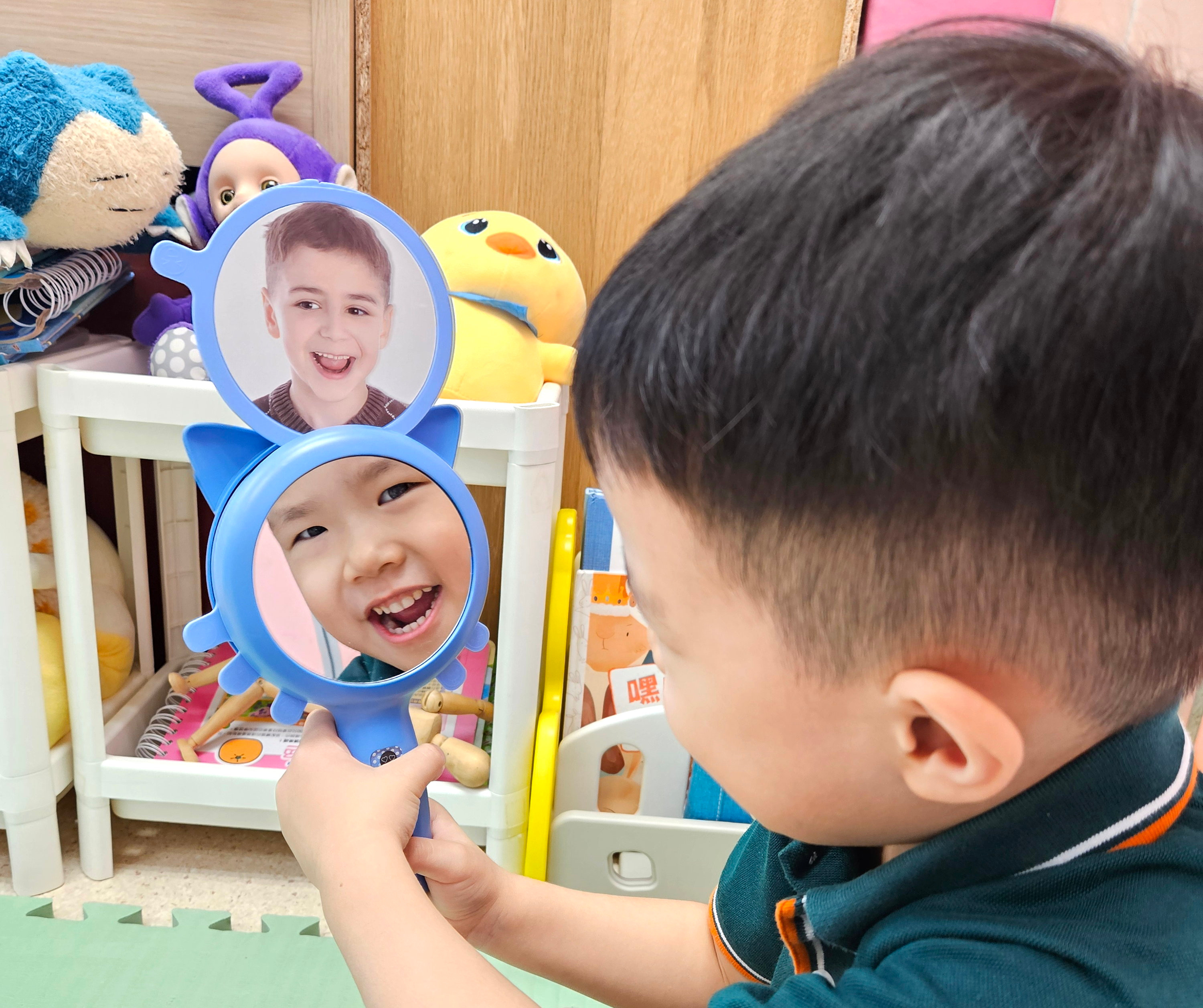
The organization is concerned with the emotional development of children. 'Growing with self-esteem–curriculum for parents of young children' is a 20-session course designed by experienced social workers and educational psychologist of TWGHs early childhood services. Each lesson consists of short articles, comics and parent-child activities, so as to help parents develop intimate relationships with their children, acquire different child rearing techniques, and cultivate children's self-esteem.
The nursery school implements the 'Zippy's friends'programmeme for upper kindergarten children to help them deal with various personal problems and emotions, such as: distinguishing and confiding their emotions, how to make and maintain friends, how to deal with change and loss etc. This is all done to elevate children’s recognition of own emotions and problem or crisis-solving abilities, thus facilitating their emotional health.
The nursery school's social worker provides continuous observations and game therapy for children who need it. The social worker will pay attention to the children's emotional changes and overall development, and attempt to understand their inner thoughts/feelings through game therapy (as necessary). The social worker also meet with individual parents to understand their needs and difficulties, so as to provide support in parenting techniques and methods.
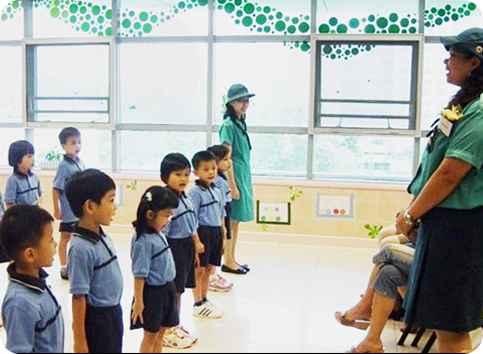
The nursery school implements the Happy Bee Hive Programme for both lower and upper kindergarten children, encouraging them to take on different challenges and inspiring activities, hence raising their awareness of the society. This also helps children establish good habits, develop a more proactive and innovative learning attitude, and cultivate fine character traits such as cheerfulness, courage and discipline.
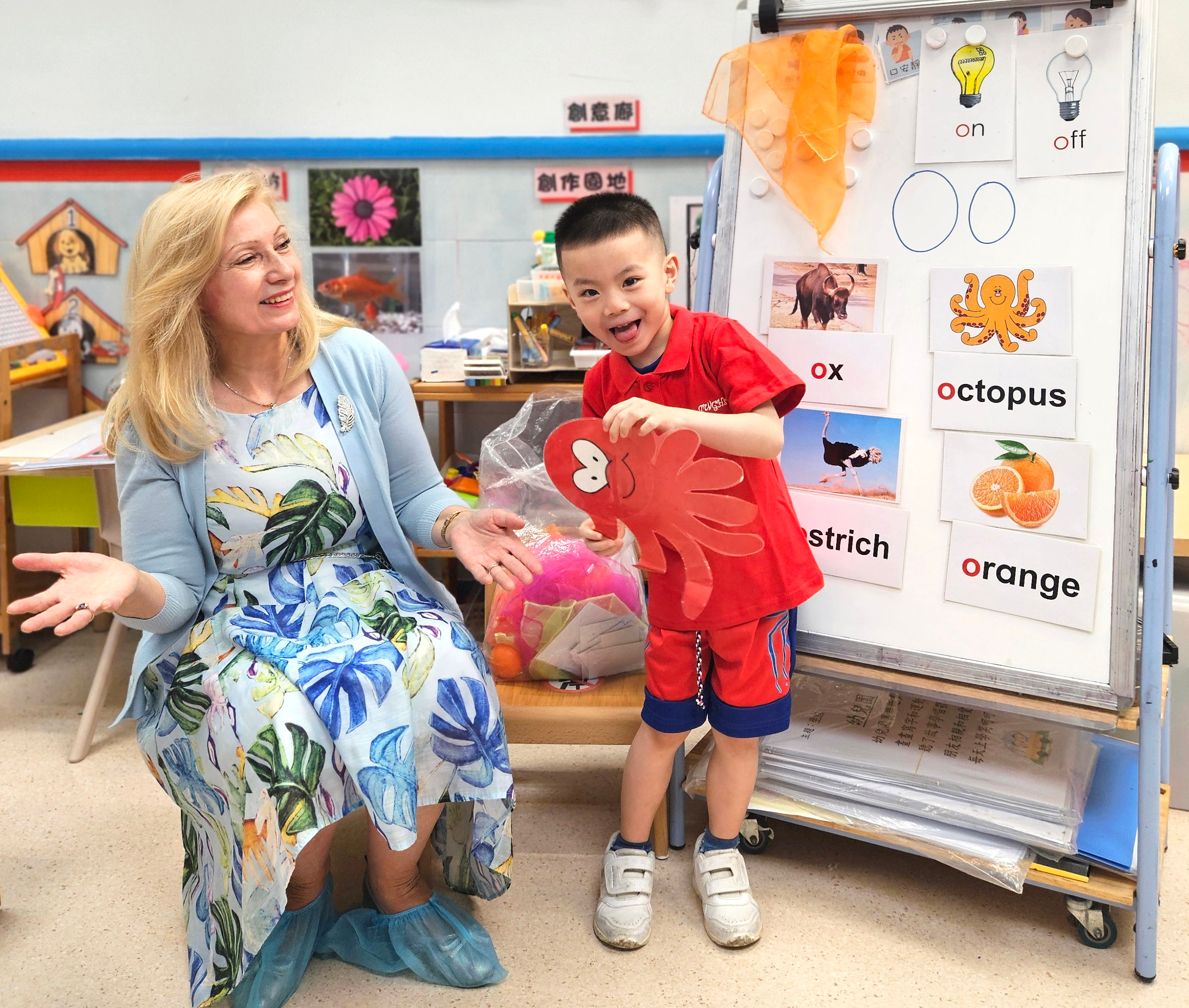
In order to enrich children's language experience, the nursery school has arranged emergent storytelling; through creation of stories, children are encouraged to share their everyday experiences, emotions, and extend their abilities in language, creativity and socializing. Additionally, the nursery school has regular visits of Native English Teacher and a Putonghua teacher for weekly all-English and all-Mandarin lessons, in which children have experience and learn different language in natural and open environments through stories, nursery rhymes, and activities, thus building towards their interests and confidence in learning second languages.